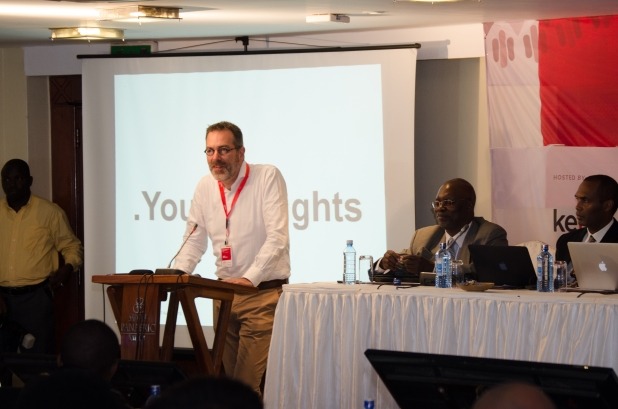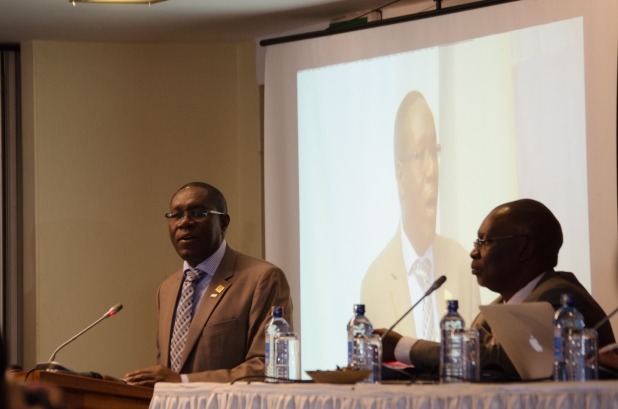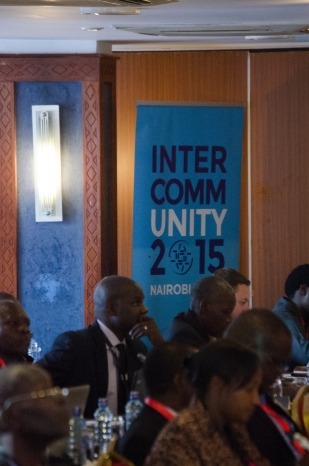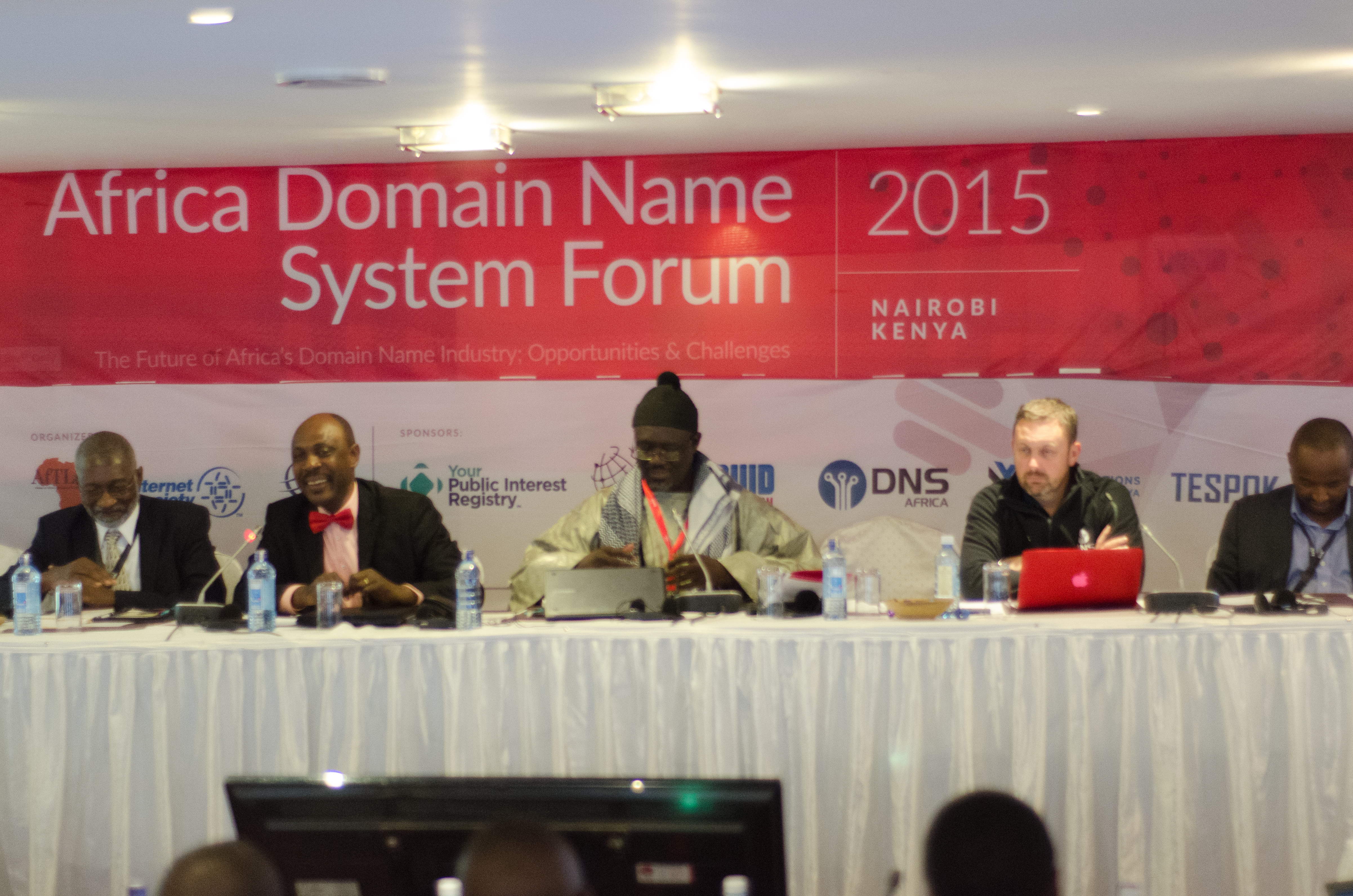On July 6th, 200 techies, business people and government representatives gathered in Nairobi, for the third Africa Domain Name System Forum, seeking to deepen engagement and grow interest in the region.
The participants, drawn from 28 countries, tackled issues such as: how do we make the forum more business oriented? How do we attract more participants? And how do we grow the overall usage and interest in DNS services?
The well-attended forum was opened by Eng. Francis Wangusi, Director General, Communications Authority of Kenya, and a keynote speech by Mr. Olaf Kolkman, CTO at the Internet Society.

In his keynote address, Kolkman took the participants through security and DNS and why it is important for registry operators to embrace it. He also highlighted trust issues and what happens when users lose trust in service providers. The technically in depth speech emphasised the role of security in DNS growth.
A panel comprising the following notable Africans highlighted the opening ceremony:
- Dr. Paulos Nyirenda (President Africa Top Level Domains Organization),
- Dawit Bekele (Director of the Internet Society’s African Regional Bureau),
- Pierre Dandjinou (Vice President Stakeholder Engagement ICANN).
In his speech, Mr. Wangusi welcomed the participants, highlighting the support the Communications Authority gives to the meeting. Moreover, Bekele highlighted the opportunities presented by the Internet in Africa, and the progress the continent has made.
“More and more Africans are also getting the Internet as indicated in the Internet Development and Internet Governance in Africa Report that the Internet Society released last month. The report indicates that from 2009 to 2014, Internet penetration in Africa grew 4 folds from 5% to 20%,” Bekele said in his speech. “This tremendous success has allowed Africa to shrink its gap with the rest of the world. Some countries, such as Kenya, are not only closing the gap but reaching connectivity and penetration levels that have nothing to envy from the developed world.”
The theme: “The future of Africa’s Domain Name Industry; Opportunities and Challenges”, seemed to befit the meeting with the first topic after the opening ceremony dealing with strategies for growing the African Domain Name Reseller market.

The issue of cost has dominated DNS conversations in Africa, and in this forum, participants explored the issue of cost versus competition in increasing reseller domain name sales for ccTLDs.
Participants discussed whether having a healthy competitive registrar market can lead to increased domain name sales or whether cost is a major factor. The discussions indicated that a balance of cost, marketing and technical resilience was important in increasing and sustaining sales.
In marketing, Lucky Masilela, CEO of ZACR, the .za registry shared examples of how registrar involvement in marketing campaigns, advertising and providing value proposition for users had helped the .za registry in increasing sales and uptake for the ccTLD and the new gTLDs for the cities of Cape Town (.capetown), Durban (.durban) and Joburg (.joburg).
The afternoon of the second day of the meeting included two concurrent sessions. One of the sessions focused on Marketing strategies for registries and registrars and this session was moderated by Mr. Andrew Mack of PIR who shared his experience of marketing the .ngo and .ong top level domains, and Mr. Ali Hussein from the Kenyan IT and DNS industry. The second concurrent session focused on DNSSEC and was moderated by Mr. Yaovi Atohun of ICANN with Mr. Olaf Kolkman and Mr. Mark Elkins sharing their experience on technical management and design of DNSSEC architecture for ccTLD registries.
Security, resilience and redundancy is a key issue in the public’s decision to buy a certain domain. An example was given of how the .ke registry was offline for five hours because the person who could help was in a different time zone. The parties involved in bringing the registry back up shared the steps they took and lessons learnt.
On the same issue of emerging trends in DNS security, DNS Africa shared their experience in implementing registry failover, redundancy and disaster recovery with emphasis that there are documents detailing how to bring the registry back up, in case of any outage.
The evening of the second day was concluded with a Gala dinner at which the Principal Secretary at the Ministry of Information and Technology (which had endorsed the event) – Mr. Joseph Tiampat ole Musuni was in attendance and thanked the audience for attending the DNS Forum.

On the last day, the highlight was a discussion on the multistakeholder model, who are the various stakeholders at the country level, ICANN level and the current debate on IANA Transition and what it means to Africa.
During the closing ceremony, optimism was expressed that DNS business in Africa will get better as more investment in infrastructure reaches more areas in the various countries. The online platform registered more than 1,000 unique visits, and there were more than 260 wifi users with the Internet peaking at 360mbps. Liquid Telecom sponsored connectivity for the event providing 1 Gbps connectivity with both IPv4 and IPv6 available. Liquid also hosted the DNS Forum delegates at their offices and organized a tour of the massive East Africa Data Center on the evening of the final day.
The forum was hosted by KENIC and organized in partnership with the Internet Society, the AFTLD and ICANN.

